The No kids: has Alex Salmond fatally misjudged under-18s?
Surveys, mock elections and anecdotal evidence show most 16 and 17-year-olds are against independence

EDITOR'S NOTE at 10.30am on 19 September: Since this article was posted, the Scots have voted against independence, by a margin of 55 per cent No to 45 per cent Yes.
Did Alex Salmond shoot himself in the foot when he insisted that 16 and 17-year-olds be given the right to vote in the Scottish independence referendum?
The SNP leader looked pretty pleased with himself when, on 15 October 2012, he agreed the deal with David Cameron – the so-called Edinburgh agreement – which laid the basis for the referendum that is now just hours away.
Subscribe to The Week
Escape your echo chamber. Get the facts behind the news, plus analysis from multiple perspectives.

Sign up for The Week's Free Newsletters
From our morning news briefing to a weekly Good News Newsletter, get the best of The Week delivered directly to your inbox.
From our morning news briefing to a weekly Good News Newsletter, get the best of The Week delivered directly to your inbox.
The unspoken calculation was that, because polling generally shows that the younger you are the more likely you are to vote Yes, the extra 124,000 voters aged 16 and 17 would deliver an electoral bonus to the Nationalist cause.
But evidence has emerged that the 16 and 17-year-olds are breaking that pattern. They are more conservative then their immediate elders and are forming an unlikely alliance with the 900,000 over-65s who are the bulwark of the No campaign.
Conventional pollsters either ignore the new voters - who are still at high school - or lump them together with older university students and young workers in a broad 16-24 category. This disguises the evidence – largely anecdotal, but also coming from surveys and 'mock' referendum results – that the 16 and 17-year-olds are thinking differently.
Research by a group of academics at Edinburgh University into the voting intentions of the under-18s supports this. In their first survey, conducted in 2013, they found 72 per cent voting No against 28 per cent voting Yes. By the time of their second survey, in June 2014, the gap had closed, but the No camp still carried the day easily - 64 per cent to 36 per cent.
The two surveys found that, as with other age groups, feelings about independence were heavily influenced by expectations of the Scottish economy. But the Edinburgh team found that under-18s were “much less likely to favour their Scottish national identity over their British identity”. Many felt they were equally Scottish and British.
Nearly three-quarters of those surveyed (72 per cent) said they were very or rather likely to vote. Translating that into actual votes could mean a bonus for the No campaign of around 30,000 votes. In a referendum where, with the latest polls showing the No camp just ahead 52 to 48, the margin of victory could be as little of 70,000, the under-18s could have a decisive influence.
A more recent survey conducted by TubeMogul suggests that among under-18s the gap might have closed still further - but they still show a substantial preference for voting No, leading the Daily Telegraph to conclude that a strong turnout tomorrow from the under–18s "could prove fatal for the Yes campaign".
TubeMogul surveyed 1,560 voters and found age was a key factor. Among under-18s, 57 per cent said No against 43 per cent saying Yes: among 19 to 45-year-olds, it swung to 56 per cent Yes to 44 per cent No; among over those aged 46-plus, it moved back to 57 per cent on No and 43 per cent on Yes.
Results from secondary school mock elections – or at least those I have been able to find – also support the contention that Alex Salmond may have made the wrong call in getting the vote for under-18s.
Better Together posted a map of Scotland in April showing eight mock elections at high schools and academies giving the No camp a resounding victory. At one school, Craigmont High, the gap was a stunning 84 No to 16 Yes.
Of course, it's important to bear in mind that these are schools that offered to share their results with Better Together - aka the No campaign – and Alistair Darling's team grabbed the chance to boast about them. But it is telling that I was unable to find any reporting of mock elections on the Yes Scotland website.
While Salmond might rue the day he argued for the inclusion of 16 and 17-year-olds, pro-democracy campaigners will undoubtedly be seeking the same rights for under-18s in future UK general elections. If we're still called the UK by then.
- Read Don Brind's post-referendum analysis of the polls here.
Create an account with the same email registered to your subscription to unlock access.
Sign up for Today's Best Articles in your inbox
A free daily email with the biggest news stories of the day – and the best features from TheWeek.com
-
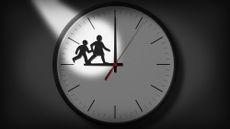 Do youth curfews work?
Do youth curfews work?Today's big question Banning unaccompanied children from towns and cities is popular with some voters but is contentious politically
By Harriet Marsden, The Week UK Published
-
 'Sleaze baack!'
'Sleaze baack!'Today's Newspapers A roundup of the headlines from the US front pages
By The Week Staff Published
-
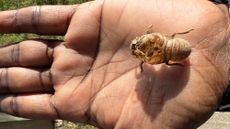 Quiz of The Week: 20 - 26 April
Quiz of The Week: 20 - 26 AprilPuzzles and Quizzes Have you been paying attention to The Week's news?
By Rebecca Messina, The Week UK Published
-
 Will Aukus pact survive a second Trump presidency?
Will Aukus pact survive a second Trump presidency?Today's Big Question US, UK and Australia seek to expand 'game-changer' defence partnership ahead of Republican's possible return to White House
By Sorcha Bradley, The Week UK Published
-
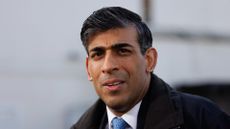 It's the economy, Sunak: has 'Rishession' halted Tory fightback?
It's the economy, Sunak: has 'Rishession' halted Tory fightback?Today's Big Question PM's pledge to deliver economic growth is 'in tatters' as stagnation and falling living standards threaten Tory election wipeout
By Harriet Marsden, The Week UK Published
-
 Why your local council may be going bust
Why your local council may be going bustThe Explainer Across England, local councils are suffering from grave financial problems
By The Week UK Published
-
 Rishi Sunak and the right-wing press: heading for divorce?
Rishi Sunak and the right-wing press: heading for divorce?Talking Point The Telegraph launches 'assault' on PM just as many Tory MPs are contemplating losing their seats
By Keumars Afifi-Sabet, The Week UK Published
-
 How would a second Trump presidency affect Britain?
How would a second Trump presidency affect Britain?Today's Big Question Re-election of Republican frontrunner could threaten UK security, warns former head of secret service
By Harriet Marsden, The Week UK Published
-
 'Rwanda plan is less a deterrent and more a bluff'
'Rwanda plan is less a deterrent and more a bluff'Instant Opinion Opinion, comment and editorials of the day
By The Week UK Published
-
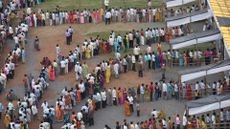 How the biggest election year in history might play out
How the biggest election year in history might play outThe Explainer Votes in world's biggest democracies, as well as its most 'despotic' and 'stressed' countries, face threats of violence and suppression
By Harriet Marsden, The Week UK Published
-
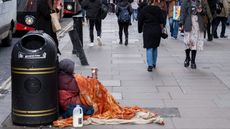 'Good democracies include their poorest citizens. The UK excludes them'
'Good democracies include their poorest citizens. The UK excludes them'Instant Opinion Opinion, comment and editorials of the day
By The Week UK Published